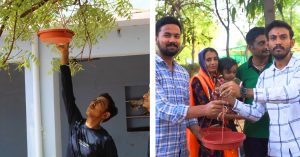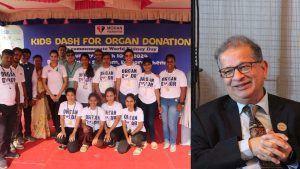‘We’re 79 & We Won’t Stop’: Couple Uses Boats to Bring Healthcare to Remote Indian Islands
The SHIS Foundation, founded by Mohammed Abdul Wohab and Sabitri Pal, operates in the Sundarbans, West Bengal. They provide essential healthcare services in the area through many initiatives like boat clinics, tuberculosis control programmes, etc.
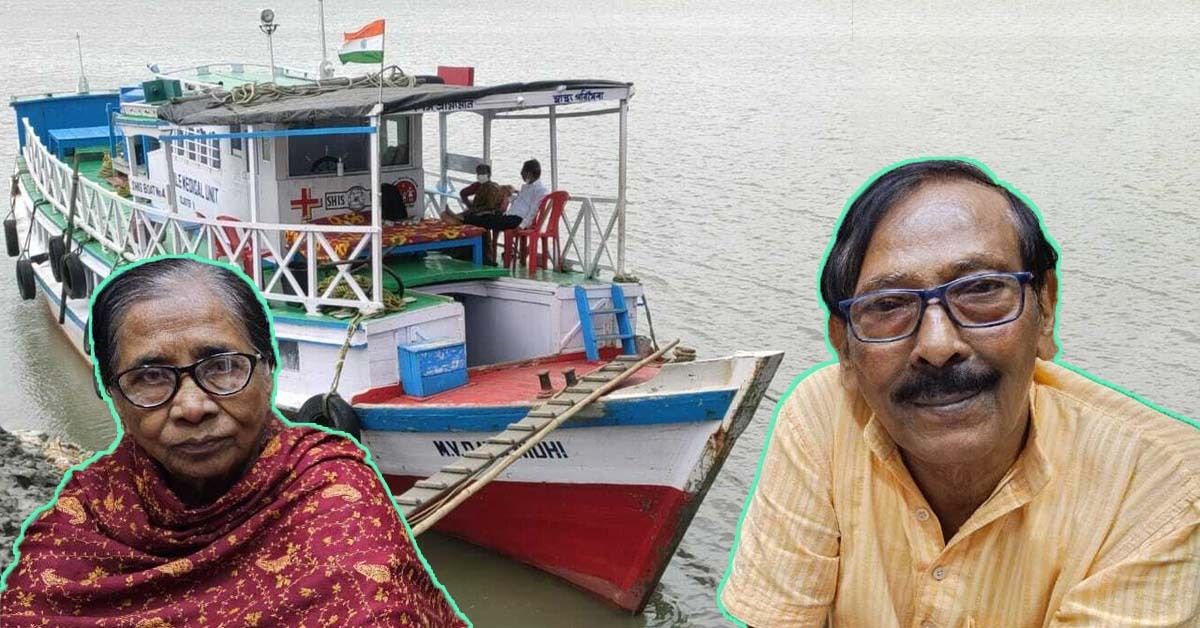
Just as Dr Anowarul Alam is finishing up dressing a patient’s wound, his phone buzzes. Anyone privy to the conversation would know that it is another patient on the line. She is running a fever and needs antibiotics urgently. Calling Dr Alam is one of her options; the other is a three-day walk from the remote island in the Sundarbans where she lives to the nearest Government hospital. It is a no-brainer which one she chooses.
After hearing her out on the phone, Dr Alam shouts out instructions to someone: “We need to move fast.” A few minutes later, the roaring of an engine is indicative of a boat preparing to head to its next destination. As the white vessel powers through the waters of the Sundarbans (one of the largest mangrove forests in the world located in West Bengal), the team inside — the doctor, a nurse, an x-ray technician, a lab technician, a pharmacist — busy themselves keeping medicines and equipment handy.
Elaborating on the unique concept, “In a month, we treat 34,578 patients in total,” Dr Alam tells The Better India, shying away from taking credit for this massive volume. “There are four boats in total and the schedule for each is set every Monday. Throughout the week, we travel across the 30 islands of the Sundarbans, covering six blocks in the North and 13 in the South. On Sundays, we return to the mainland where we stock up on supplies, medicines, rest and recharge for the next week.”
Dr Alam has been doing this for the last 10 years. In fact, he was one of the first doctors to be appointed by the couple Mohammed Abdul Wohab and Sabitri Pal — the founding members of the SHIS Foundation (Southern Health Improvement Samity) started in 1980 — when Wohab, a lawyer, and Pal, a teacher, bonded over their intentions to champion change in their community.
‘People were dying in front of my eyes’
380 mm of rainfall in 24 hours.
West Bengal hasn’t been able to forget 27 September 1978. Thousands died, starved and were left homeless as the torrential rain washed away entire houses. Wohab, who lived in Howrah at the time, recalls the harrowing ordeal. “It was heartbreaking to watch people and their cattle drowning in the water. All around, flood victims were taking shelter in other’s homes and schools, and even climbing up trees to avoid drowning.”
No one knew what the next week, much less the next few days, would bring. It was in this chaos that Wohab watched as a man, who seemed like a foreigner, was rowing his boat through the floodwater, distributing food packets to people. This attracted the lawyer who was working as secretary to a village-level governing body at the time.
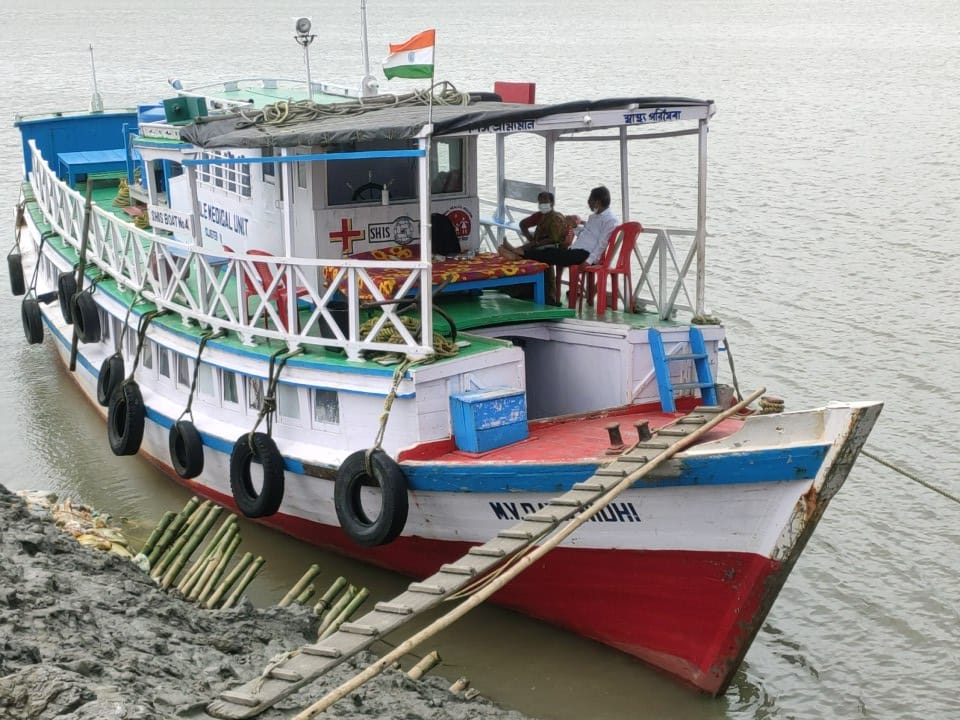
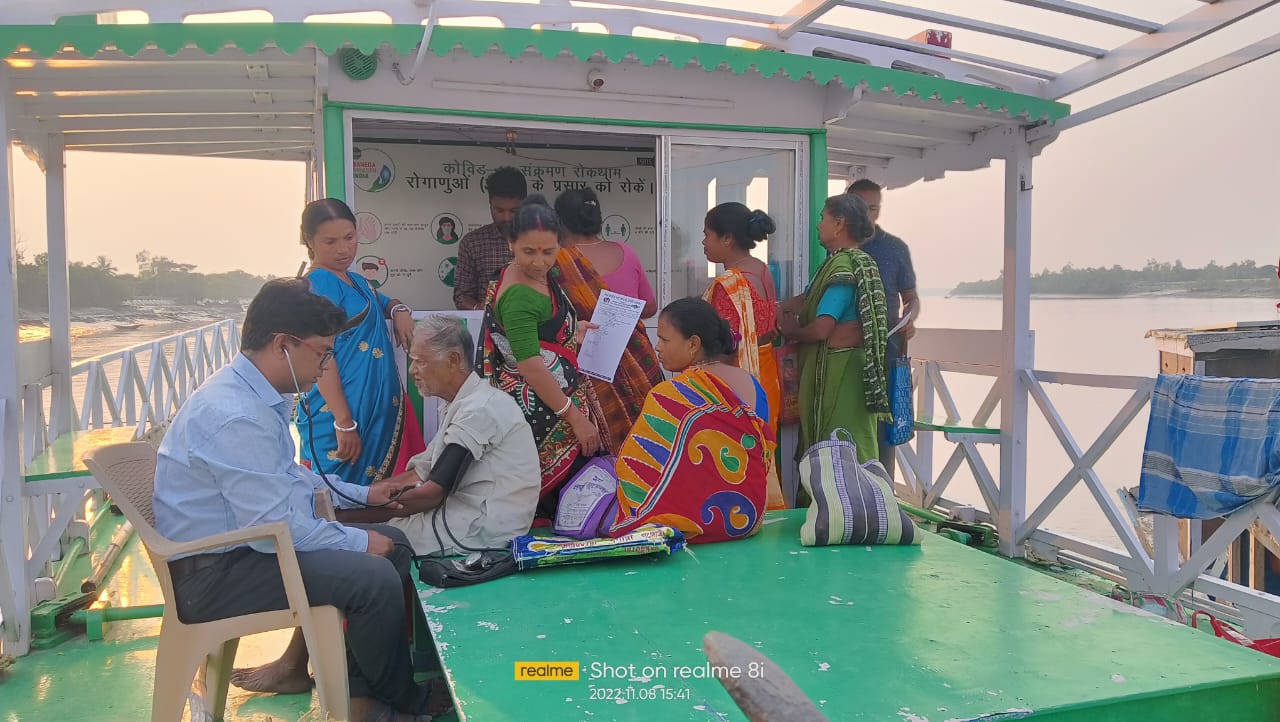
As he would soon learn, the man was Grandjean Gaston, a nurse from Switzerland. “Brother Gaston had been battling a heart condition and had decided to dedicate his life to the poor in India,” Wohab explains. He wanted to follow suit.
And so, that year, inspired by Gaston’s story, the couple decided to recalibrate their plans; and moved back to their hometown in Bhangar, South 24 Parganas. The goal of this move was simple: Spot areas where their communities lacked resources and bridge those gaps.
As the flood waters began to recede, they left behind many challenges for the residents of West Bengal. The chill in the air and the bacteria breeding in the murky waters had only added to the existing battle against tuberculosis (TB) that the community was fighting.
“People were dying in front of our eyes,” Wohab recalls. “It often started with a cough and before the person knew it, they were detected with TB. As we spoke to people in the neighbourhood, we understood that almost 50 percent of people with chest problems did not go for a checkup until they started vomiting blood. And once they reached this stage, it was, more often than not, too late. We also found that there were only three doctors in the Sundarbans at that time and more than three lakh patients.”
The couple wanted to help. They had heard about doctors in Kolkata who were distributing medicines for free. “Sabitri and I started making trips to these clinics to collect the medicine samples which we distributed in a small room that a tea shop owner had lent to us. Through the weeks, people from across Sundarban islands would come to get an antidote to tuberculosis, cold, cough and fever.”
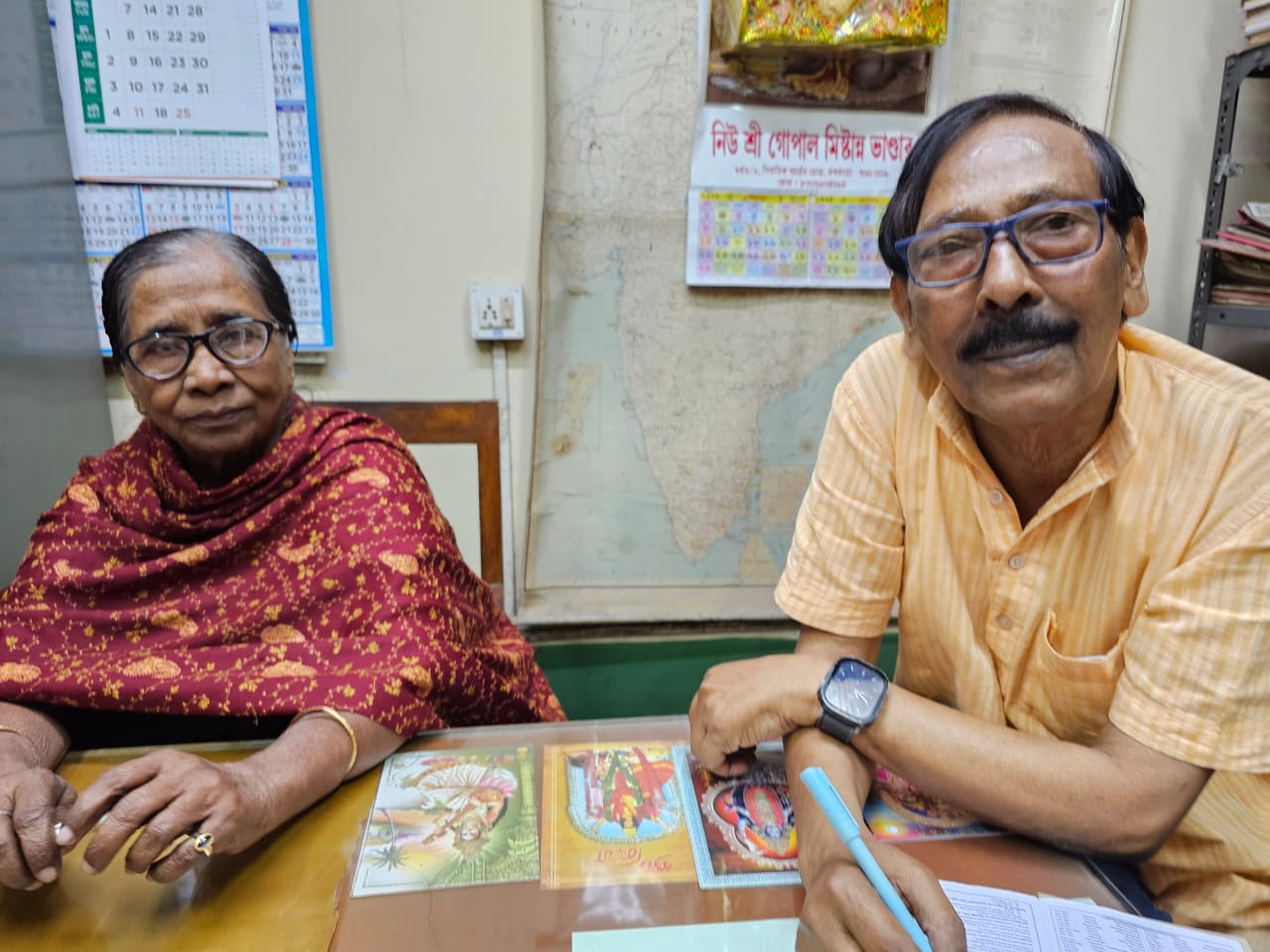
But when the patient numbers began to surge to an overwhelming peak, the couple was faced with the challenge of switching gears yet again.
It was around this time that French writer, Dominique Lapierre, was documenting the life of Gaston for his upcoming novel. When Gaston relayed the story of Wohab and Pal and their work to Lapierre, he was impressed. In the next few months, the couple was looking at four fully-equipped boats and two mobile emergency ambulances — Lapierre’s gift to their cause.
And that is how the SHIS Foundation’s Boat Clinic was born.
The last 43 years have witnessed the couple extending the foundation’s reach by including many programmes under its ambit. These include a tuberculosis control programme, an eye care hospital, a school for girls, a centre for disabled children to learn, and skill development programmes for the women of the Sundarbans.
A clinic that comes to your doorstep
Dr Alam elaborates on the joys of this unique work setup; even as the fluctuating call network suggests the remote locations he has to head to for consultations. “I won’t disagree that it is challenging. But for those of us who have grown up in the Sundarbans, there is no greater joy than treating our patients.”
He recalls one of his recent cases of a pregnant woman. “We gave her primary treatment in the boat clinic but she needed immediate attention. Since we do not undertake serious medical cases in the boat clinic, I referred her to the nearest Government hospital. We arranged for local transport to get her there and she delivered a healthy baby.” It is stories like these that make him smile.
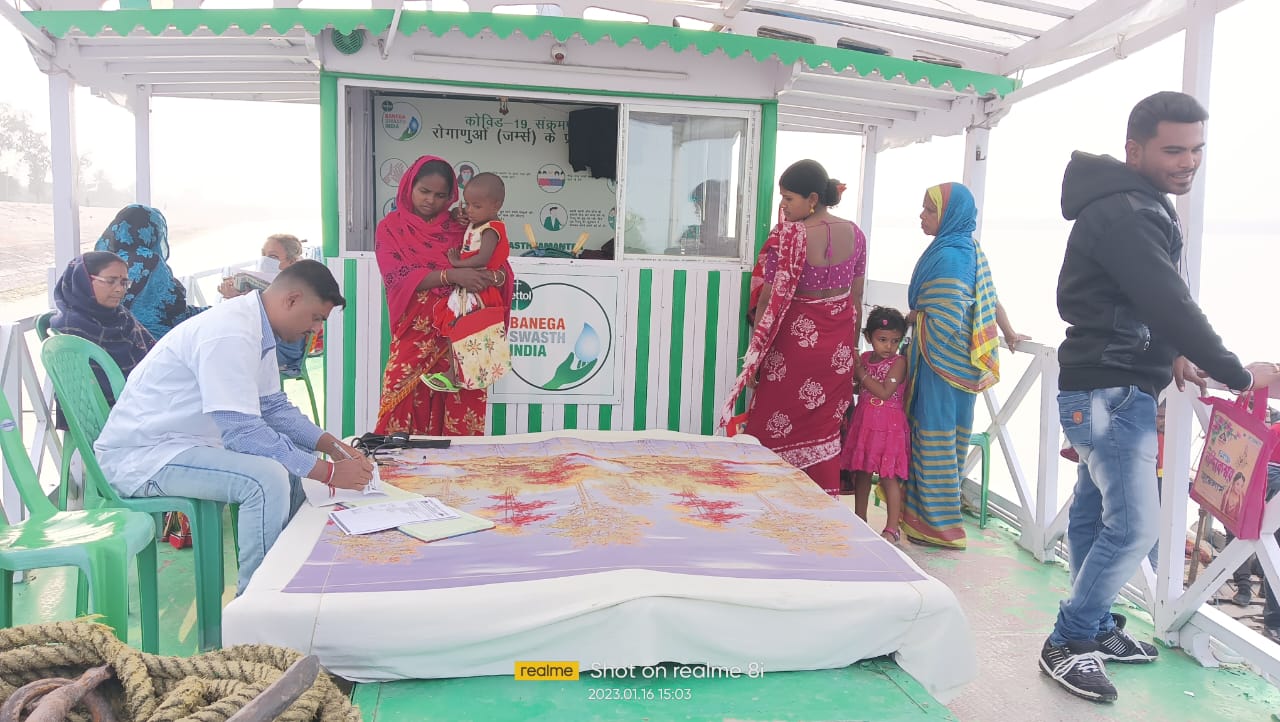
While pregnancy cases top the charts, the other cases include young couples wishing to begin their family planning, women seeking help with oral contraceptives, patients who need stitches and dressing for their injuries, and those who need antibiotics. Running a clinic set up in the constricted space of a boat is not ideal, but the terrain makes it the only option feasible.
Each boat clinic includes two medical beds, a mobile X-ray, a small pathological unit, a medical store room, and an oxygen cylinder.
Since its inception, eight lakh patients have been helped by this innovation. As Wohab explains, nothing is voluntary. The doctors and all medical technicians appointed for the boats are paid a salary. “This is to ensure that it is a continuation of service and the patients will not be stranded.”
It is heartwarming to watch a community that was once starved of medical attention now on the path to better healthcare services. But bringing about this radical change hasn’t been a day’s job, notes Wohab, as he dives into the setting up of the SHIS Foundation, and how he and Pal transcended the obstacles that showed up.
Investing resources: both financial and emotional
Spread across 1,40,000 hectares at the confluence of the deltas of the Ganges, Brahmaputra and Meghna rivers, the Sundarban mangrove forest sees a heavy intersection of tidal waterways and islands. While this is a picture of a perfect ecosystem it also means tough commuting for the locals. The people of the delta must walk for hours to avail of any facility.
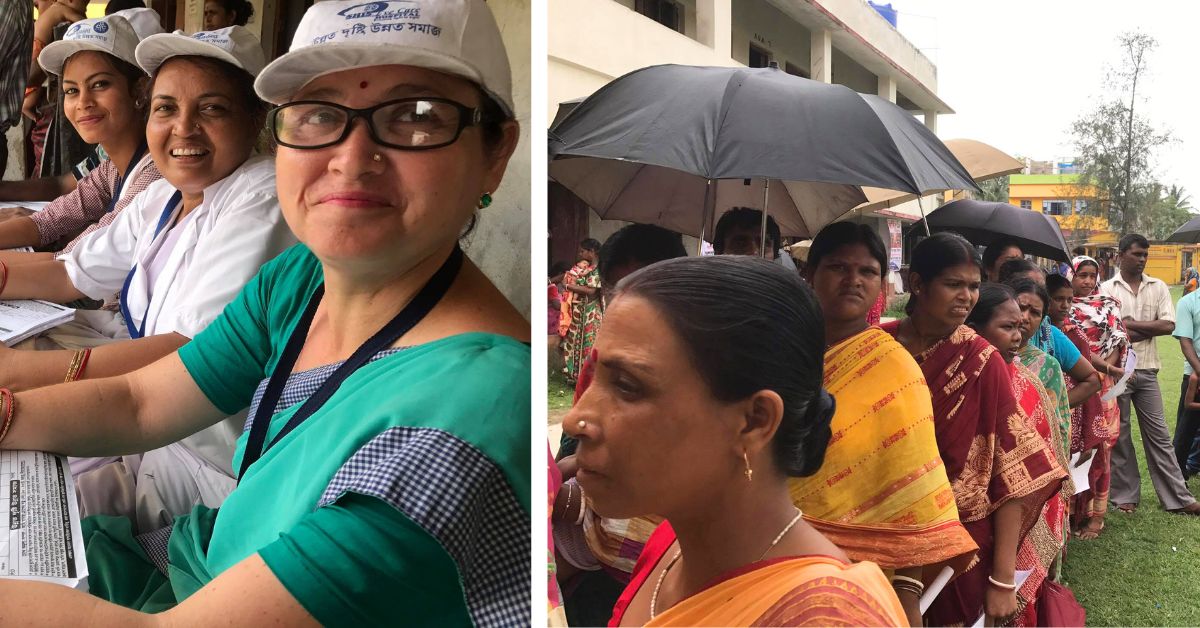
But since 1980, when Wohab and Pal started the SHIS Foundation, they have been trying to bring these services to the people’s doorsteps. Today, their resilience is reflected in the many programmes helmed by the foundation.
One of these is the tuberculosis control programme. The key objective of this project is to create demand and social support for TB diagnosis and improve access to diagnosis and treatment of TB through Directly Observed Treatment Short Course (DOTS) — the tuberculosis control strategy recommended by the World Health Organisation.
Through its clinics and volunteer base, SHIS is attempting to help hinder the progression of tuberculosis right at the onset. Wohab shares that the programme is one of their biggest chapters aside from the boat clinics. “More than 40,000 people have been able to manage their TB through the medicines that we provide them.” He adds that they procure these medicines from the Government for free.
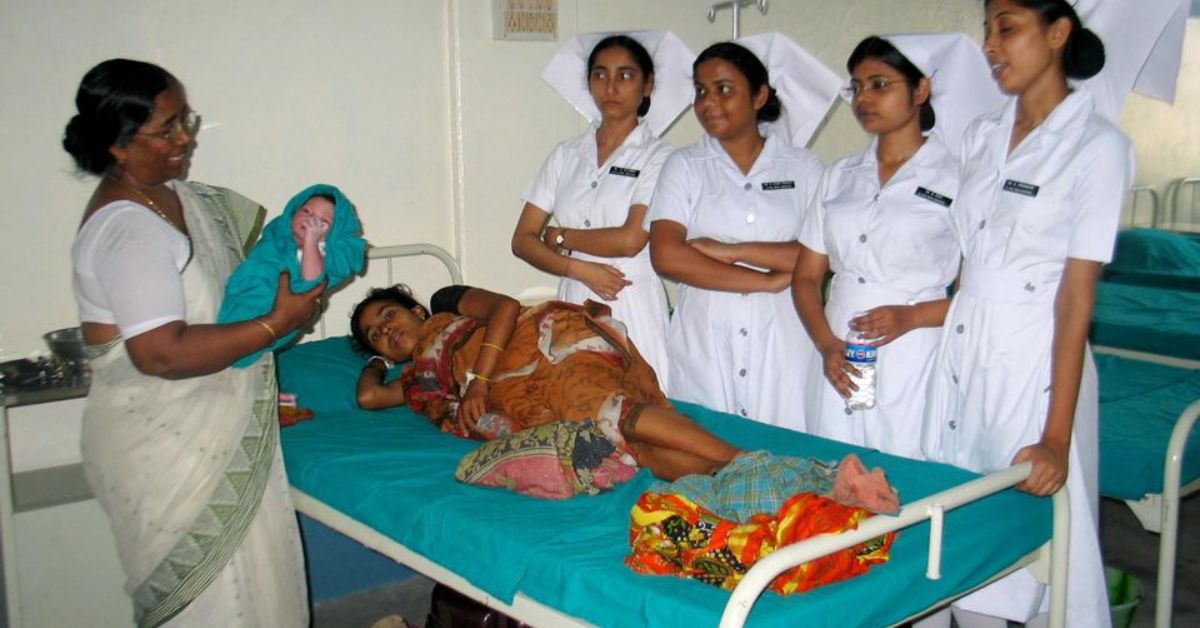
Another project is the community delivery centres, through which SHIS ensures that expectant mothers have a safe, compassionate and nurturing environment where they can deliver their babies. Currently, three community centres are operated at Bayermari in Sandeshkhali, Jumainaskar in Kakdwip Block, and Rakhalpur in Patharpratima Block. Each centre has all the necessary medical equipment for a smooth delivery and a stabilisation unit.
The eyecare hospital is another project where SHIS is seeing success. In compliance with NABH (National Accreditation Board for Hospitals) standards, the hospital provides great quality eye treatment to the poor in Sundarbans. This includes checkups, glaucoma management, intra-ocular lens implants, eye camps, etc.
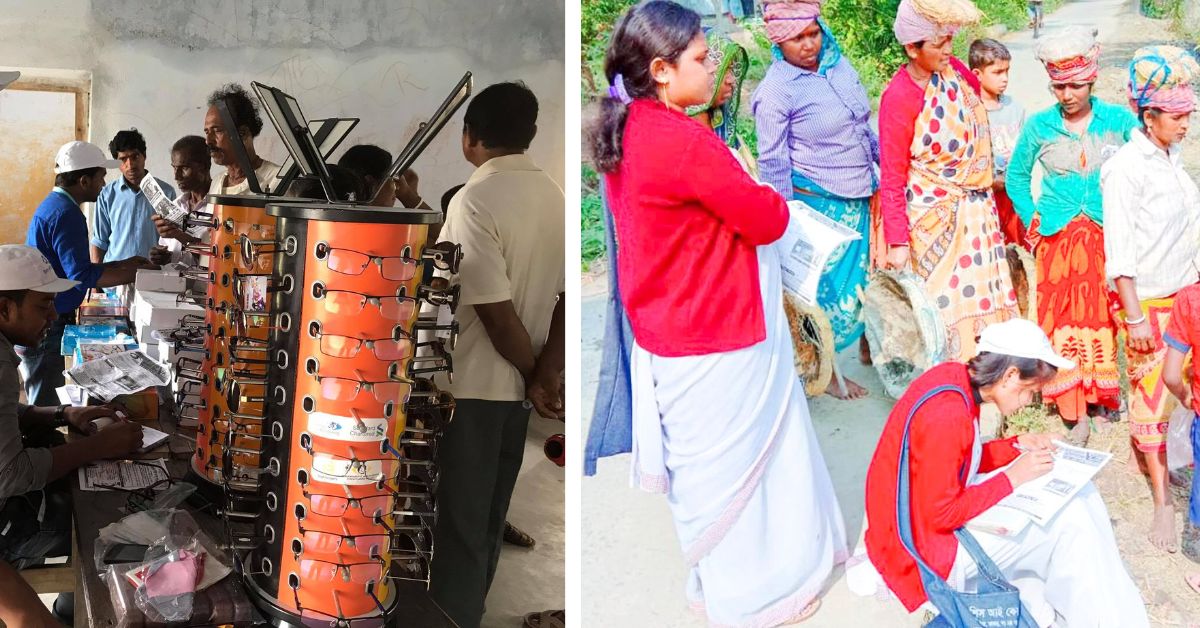
In addition to this, the foundation has helped rehabilitate 44 dacoits and thieves, and engage them in skill development. In an attempt to restore women’s sense of agency, they have secured loans for women who wish to start a self-help group and earn a living. Their initiative for deaf and mute children encourages them to study, and some of them have even graduated, says Wohab. They also have a centre where girls are taught and helped to complete their school and college education. “Over 700 children have been helped in total and many of them have secured Government jobs,” Wohab adds.
The educational endeavours are based on the belief that the youth of the Sundarbans are bubbling with creativity that mustn’t be stifled. These programmes are a step towards helping these children to channel their talents in a constructive direction.
Each time the couple has encountered adversity — sometimes with diminishing funds, other times with the climate playing spoilsport — they are reminded of why they started. From a humble initiative in a tea shop, the foundation has evolved into a place where new possibilities are given space to grow.
If you’d like to support them with funds, here’s a link with the details.
Edited by Pranita Bhat
If you found our stories insightful, informative, or even just enjoyable, we invite you to consider making a voluntary payment to support the work we do at The Better India. Your contribution helps us continue producing quality content that educates, inspires, and drives positive change.
Choose one of the payment options below for your contribution-
By paying for the stories you value, you directly contribute to sustaining our efforts focused on making a difference in the world. Together, let's ensure that impactful stories continue to be told and shared, enriching lives and communities alike.
Thank you for your support. Here are some frequently asked questions you might find helpful to know why you are contributing?






